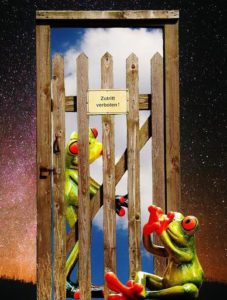
Why am I summarising, or even reviewing, a self-development book on an animation blog? Two reasons. Firstly, films are about people, and books like these have some fascinating stories about people. Secondly, because I annoy myself. Talent and skills are not enough to succeed in creative industries. They really are not. Primadonnas don’t make good team members, ivory towers don’t make good creative environments. Inspiration does not ‘arrive’, and you don’t just deserve success. If you want to avoid hard work, commitment, action, failure, struggle and rejection, then chose another career. Creative work is not a ‘soft option’ or an ‘easy degree’. Be prepared to work on yourself, as hard as you work on your skills. But it’s not all blood, sweat and tears… this is a book that had me laughing all the way through, almost. And am I a better person for reading it? I hope so!
By the way there are a couple of affiliate links on the page for you to buy the book. Affiliate sales is one of the ways I make an income from this site, so that I can keep providing great free content to you, so feel free to shop through my links and it helps me to keep blogging!
<< Find The Subtle Art of Not Giving a F*ck: A Counterintuitive Approach to Living a Good Life on Amazon >>
(As an Amazon Associate I earn from qualifying purchases.)
The Subtle Art of Not Giving a F*ck: A counterintuitive approach to living a good life by Mark Manson (2017)
Is it cool to be a victim today? Do you really deserve to have the life you want? This book is an attack on entitlement, and a great antidote to some of the life coaching trends today, easy to read with some great stories to illustrate. Mark Manson offers a sharp wake up call to the millennium generation, written with humour, wit and quite a lot of swearing.
I’ve written way too much in this review, its not even a review anymore, its a book summary! Really it’s because I’m taking notes for myself, I needed this reminder. Have I given it all away here? If what I’ve written here makes some sense reading the book will give you a fuller account, as well as plenty of entertainment.

He describes a ‘psychological epidemic’ (p:20) of people believing that life is meant to be perfect, and that suffering is an aberration of living. He asks us to consider a ‘practical enlightenment’ (p:21) to understand that suffering is an inevitable part of life. It’s not about alleviating pain, but about bearing it; not about being great, but being real. It’s about ‘turning your pain into a tool, your trauma into power, and your problems into slightly better problems.’ (p:21) This book is ‘a guide to suffering and how to do it better, more meaningfully, with more compassion and more humility… [it] will not teach you how to gain or achieve, but rather how to lose and let go.’ (p:21).

I love the way he tells the story of Prince Siddhartha. It’s very relatable to parents that strive to make their children’s lives perfect, to bring them up surrounded by everything they could possibly want or need, never to see or experience suffering, never allowed to fall and graze their knees. This prince is still not happy, everything seemed empty and valueless, and nothing was enough. So he escapes, and he sees suffering, sickness, death, and he does not know how to deal with it. He decides that too much opulence had made his life meaningless, so he gives up his riches and position, and spends years wandering about in poverty, starving and begging. Eventually he realised that suffering is pretty meaningless too. So he decides to sit under a tree until he has truly understood the point of life.

What he discovered was that life is suffering, and renamed himself the Buddha. Poverty makes us suffer, wealth makes us suffer, not having a family makes us suffer, having a family makes us suffer, some suffering is worse than other suffering, but we all suffer. (Indeed we need that suffering to drive us forward, just like the lotus needs mud in order to flower.) That’s the point, life is not about arriving at perfect happiness and staying there, it’s about facing the challenge of our suffering. It’s about that struggle. ‘Who you are is defined by what you are willing to struggle for’ (p:40), not what you want to be, or who you think you are. We all dream about having, or being, something that will make us happy, we want the result but not the process, the victory without the struggle. ‘Our struggles determine our success…our problems birth our happiness’ (p:40).

The self help movement has been promoting the idea that we are all special, and all destined for greatness (and we can all pay to be told how). But can we all be so special? Do we all deserve to be special? (reminds me of the Incredibles the evil Syndrome explains that he has created a superpower that can be sold so that when everyone is special, then no-one will be special.) Being average is then seen as a failing, which then leads people to be at either extreme of the special gradient.
 Rather than be mediocre we want to be the most miserable, the most victimised or the most oppressed, that is if we can’t be the biggest, best and most. Or we flip between the two. But let’s face it, it’s easier to compete for the sympathy vote than to actually become brilliant at something. Then we feel we matter, we have an importance, but if we were average, we would somehow disappear and be unimportant. There is an idea now that we are “entitled” to matter, without having to deserve it or struggle for it. And this means that we miss out on appreciating the simple, and ordinary pleasures of life. “But maybe they are ordinary for a reason: because they are what actually matters.” (p:62)
Rather than be mediocre we want to be the most miserable, the most victimised or the most oppressed, that is if we can’t be the biggest, best and most. Or we flip between the two. But let’s face it, it’s easier to compete for the sympathy vote than to actually become brilliant at something. Then we feel we matter, we have an importance, but if we were average, we would somehow disappear and be unimportant. There is an idea now that we are “entitled” to matter, without having to deserve it or struggle for it. And this means that we miss out on appreciating the simple, and ordinary pleasures of life. “But maybe they are ordinary for a reason: because they are what actually matters.” (p:62)

“If you want to change how to see your problems, you have to change what you value and/or how you measure failure/success” (p:79). Some of the things we value lead to a pretty unhappy life. There are four popular and encouraged values that actually lead to huge loss. Prioritizing your life around pleasure can lead to a powerless existence or possibly losing everything, drug and alcohol addiction, overindulging in shopping and food, gambling. Material success is another destructive value, measuring your self-worth by how much money you make, terrified of losing it, and prioritizing it over all other values. Always being right will prevent us from learning anything about ourselves, lacking perspective and empathy with others. Staying positive at the expense of being honest with how we feel about the tragedies that pepper our lives will leave us avoiding our emotions, denying anything that doesn’t fit what we want to feel and creating an ‘emotional dysfunction’. By denying life’s problems we deny ourselves the chance to face them and solve them.
 Bad values are achieved externally, based on what other people think, what we own, impressing people, being right, being popular, but we have no control over this. On the other hand good values are achieved internally, like honesty, creativity, curiosity, self-respect, humility, these are things we can control, they are based in reality and are socially constructive.
Bad values are achieved externally, based on what other people think, what we own, impressing people, being right, being popular, but we have no control over this. On the other hand good values are achieved internally, like honesty, creativity, curiosity, self-respect, humility, these are things we can control, they are based in reality and are socially constructive.
Responsibility is sometimes confused with fault and blame. We might not feel that we are responsible for something that has happened to us because we would say that we didn’t make that happen, we are not to blame for that thing happening, it’s not our fault. But that’s not what responsibility means. What is meant by responsibility is the choice that you have right now. The choice of how to see things, how you react to them and what you value. Your experience of life is down to these choices you make in the present.

At the moment it’s almost cool to be a victim. Blame give’s people a temporary high, and the public blame/shame game gets people a lot of attention. It gets far more attention on social media than real news and useful information, the being right value is relatable to most people, and it’s addictive. In fact money is made on internet based media by generating outrage, through blaming and shaming, and broadcasting this outrage back to people to generate yet more outrage. Ryan Holiday calls it “outrage porn”, and it distracts everyone from the real issues at stake in society today, and the real victims. Taking responsibility for your choices of how to react, what to value and where your priorities are is simple, but very hard to do. We will have surrounded ourselves with people who have similar values to us, so when we change our values, we may lose those relationships too.

Without admitting to what we don’t know, we would never learn anything. Without uncertainty we would never progress. Without being wrong, we can’t listen. Besides what is right for one person is not right for another, we have different needs, and we are at different stages of our journeys. We don’t even know what a bad experience is, from the perspective that these often turn out to be transformative moments that actually change our lives for the better.

Our brains are always trying to find meaning and make, often random, associations between things, in order to create meaning. Often we create meaning from misconceived events, then believe in it. He goes as far as to assert that “all beliefs are wrong – some are just less wrong than others. The human mind is a jumble of inaccuracy.” (p:123). He describes this as a scientific approach. Our current hypotheses are our values, what behaviour we think is good or bad. Our experiments are the actions we take, and our data is the resulting emotions, thought patterns and progress of our life. Why do we cling to being right, and certain, when our belief is probably not right, and certainly restrictive?

Here’s Manson’s Law of Avoidance “The more something threatens your identity, the more you will avoid it.” (p:130) This actually explains why we manage to avoid success, becoming wealthy, following our passions, being happy, as well as lack of success, losing everything, grieving, giving up on something that is not working for us. We are afraid of success for the same reason we are afraid of failure, because it doesn’t fit with our current identity.
 Sometimes letting go of our identity can help us move forward, who are we anyway? When we think we are special or unique, we think our problems are also special and unique, and therefore unsurmountable. But by giving up these grandiose ideas about ourselves, we also give up our sense of entitlement, that the world owes us something because we have a special problem, or talent. Here are three questions to ask yourself: What if I’m wrong? What would it mean if I were wrong? Would being wrong create a better or a worse problem than my current problem, for both myself and others? (p:135-139)
Sometimes letting go of our identity can help us move forward, who are we anyway? When we think we are special or unique, we think our problems are also special and unique, and therefore unsurmountable. But by giving up these grandiose ideas about ourselves, we also give up our sense of entitlement, that the world owes us something because we have a special problem, or talent. Here are three questions to ask yourself: What if I’m wrong? What would it mean if I were wrong? Would being wrong create a better or a worse problem than my current problem, for both myself and others? (p:135-139)

We improve at something only when we are prepared to fail, or when we are not crippled by the fear of failing. There is a risk involved in becoming successful or good at something. The risk is that we may fail. If we are afraid of failure then we stay where we are and don’t take risks, we don’t move forward. Failure is more likely when we are valuing something we have no control over, for example ‘wanting other people to like me’. We can’t control how other people feel, so we are very likely to fail if that is what we are after. However if we altered this value to ‘enjoy my social life’, that’s up to us, it’s in our control so we can achieve it. We have to be able to face adversity, to live through pain, and failure is the opportunity to learn this.

Action is the only way to improve or succeed at something, fear of failing cripples our ability to take action. Sometimes we think we should have the answer first, we should know what to do but that’s not the case, everything starts with action. “Don’t just sit there. Do something. The answers will follow.” (p:154) We can also think that we need to feel motivated before we take action, but that’s also not the case. Action is not a side effect of motivation, it is the cause of it. Action creates motivation, and it also creates inspiration. Action always has to come first. If we are afraid of failure we won’t take action. It is necessary to be able to fail, and get up, and be prepared to fail again, and get up, because action has to come first, then the answers, and the inspiration and motivation.

A consumer culture, and many self help books, can lead us to believe that we need to be as accepting and affirmative as possible, say yes to everything be open to all opportunities. But is this also a response to us avoiding both giving and receiving rejection, a fear on conflict and confrontation? These difficult emotions are avoided by people who feel entitled to feel good all the time. Are we simply scared of focussing on something and committing ourselves to it? Because if we do, we have to work hard, face failure, work through it, we have to stick with that commitment even when its not making us feel good. Entitled people run away from difficult feelings, from failure, from pain and not being good enough, from the work to become good enough.

Culturally we are addicted to romantic love, it stimulates the same part of our brain as Cocaine does, giving us the same highs and lows. This is not love it’s just escapism. Taking responsibility for our own problems is to have healthy boundaries. Entitled people avoid taking responsibility for everything in their life and therefore will have poor boundaries in a romantic relationship, a family relationship and in friendships. Entitled people have only one value, to try to make someone else happy, or to get someone to make them happy. But we can’t fix other people’s problems and other people can’t fix ours. You can’t buy love and appreciation by paying for what you think is a solution.

Unfortunately ‘rescuers’ and ‘victims’ seek each other out in life and end up in relationships based on entitlement and poor boundaries. The victim will continue to create more problems for the rescuer to solve, and so the charade continues. For a relationship to be based on trust, you both need to be able to hear the truth sometimes, especially when it is unpleasant. Avoiding pain, unpleasantness, difficulty and always being right will not create a relationship of trust, and therefore meaning.
 If we forever think that the grass is greener somewhere else, we cannot dig down to the gold beneath our feet. Breadth of experience may be good in youth, but to mature we need to commit, to narrow our interest, to focus on something, to get good at something. “commitment gives you freedom because you are no longer distracted by the unimportant and frivolous….commitment allows you to focus intently on a few highly important goals and achieve a greater degree of success than you otherwise would.” (p:182)
If we forever think that the grass is greener somewhere else, we cannot dig down to the gold beneath our feet. Breadth of experience may be good in youth, but to mature we need to commit, to narrow our interest, to focus on something, to get good at something. “commitment gives you freedom because you are no longer distracted by the unimportant and frivolous….commitment allows you to focus intently on a few highly important goals and achieve a greater degree of success than you otherwise would.” (p:182)
Ernest Becker wrote The Denial of Death (1973) and in it he proposes the idea of “death terror” which is the ability to imagine a reality without ourselves in it. It underlies everything that we think or do. He also describes us as having “immortality projects”, which allow us to live on after our death, through what we have made, our children, even our civilisations. We fight for these things, sometimes at the cost of other people, and civilisations, right to live. This is our way of managing our fear of death. Trauma, shame, social ridicule, and mental illness, drain the meaning from these immortality projects leaving us with our death terror. Our immortality projects are our values, and when our values fail, we lose the meaning and worth in our lives. Becker’s “bitter antidote” to the unhealthy lengths people will go to impose their immortality on the world, is to reconcile ourselves to the reality of our own death. When we do this we can chose our values wisely.

Facing our own death enables us “to appreciate life more and remain humble in the face of its adversities”. (p;198) or as Mark Twain puts it:
“The fear of death follows from the fear of life. A man who lives fully is prepared to die at any time.”
Confronting our mortality focuses on what is important, what is our legacy? What did we do to make the world better, what mark did we leave? Caring about something greater than ourselves, contributing to a larger entity, puts our death, and our life in perspective. This is the opposite of entitlement, which is about sucking all the attention towards ourselves. This false superiority, demanding that our needs and feelings be catered for, ironically, isolates us and cripples us with a fear of failure. Great attention is not great success, but committing to good values is. Accepting death makes it easier to identify our entitlement, accept responsibility, suffer what needs to be suffered, accept failures and rejections, and commit to something greater than ourselves, and our legacy.
<< Find it on Amazon here >>
(As an Amazon Associate I earn from qualifying purchases.)
I love this book. It’s entertaining, made me laugh, and think. If it resonates with you at all, buy it, read it, and buy one for a friend too!
Thank you.
Related post >> Creative Life? You Can Figure it Out!


When I first picked up Mark Manson’s The Subtle Art of Not Giving a Fuck, I was a little thrown off. After all, when’s the last time you picked up a self-help book with an F-bomb on the cover? But, as the subtitle of Manson’s book proclaims, this is “a counterintuitive approach to living a good life”. And that’s exactly what Manson aims to share with his readers. This was such an amazing review and I totally recommend this book to anyone. The title looks subtle, but totally worth it 😉
Thanks Solomon, glad you like the book. There does seem to be a trend at the moment of books with the f word on the cover and littered through the pages. It might be a sales thing, but actually this book does have something very useful to say.
Thanks for taking the time to leave a comment!
Wow! It sounds like a really good book! I am reminded of something that I read recently about the ideas of Tsunesaburo Makiguchi who advocated the moving away from the two extremes of a dependent life and an independent life towards what he called a contributive way of life (in ‘The System of Value-Creating Education’).
I’m also reminded of the preamble to the Earth Charter that reads in part, ‘We must realize that when basic needs have been met, human development is primarily about being more, not having more.’
Maybe I’m going off on other tangents? However, I agree with your argument that whatever our personal field of expertise we do need to be prepared to develop ourselves if we are succeed in today’s precarious and fast changing world..
Thank you for your comment Eve! One of the reasons why I liked the book was that it did seem rather Buddhist in many places.
Some of the other ‘don’t give a f*k’ books at the moment do feel a little bit self-centred, but this book is all about what you can contribute to the world, with humility too. I think its a very honest book.
I agree with your comment about being more, not having more. Our basic needs have to be met, but the line between insecurity, greed and enough can be pretty thin.
Thank you for taking the time to leave a comment!
Hi Lucy,
This book seems to be pointing a perspective of how to be a better person by staying real to yourself and not just saying yes too everything and being good to all. The challenges in life will always come with pain and pleasure. That’s how life goes. It reminds me of being in a relationship, it can be painful sometimes and that’s where you see your own self. How you react is also part of the process. Instead of avoiding it, you need to live with it and find a solution. The way this writer shows us how to be free can be harsh or ruthless but many people needs it. It is a slap in the face to yourself that is worth it. Leaving asides the excuses and be real to yourself… I will read it. All the best, Alvaro.
Thanks Alvaro, you are absolutely right, being real, being committed, and accepting that life can be painful. You are also spot on that finding a solution is usually better than avoidance. Hope you enjoy the read and thanks for taking the time to leave a comment.
Thank you for the succinct summary, Lucy. Having read the book and having retained very little of it, your blog post was a helpful reminder of what the book was about. I felt the book had very few fresh ideas and much of what the author has written had already been shared elsewhere but the engaging style of writing and the anecdotes made for an easy read. I look forward to more such book reviews/summaries from you as they will greatly help with my decision to read them or not.
Thank you Abhi, yes after a while self development books do all seem to say the same things, but with a different emphasis. It is common sense after all. But sometimes I still need a reminder! I liked the stories in this book, and I like the down to earth tone he takes. Thank you for taking the time to comment, and I look forward to writing more book reviews.